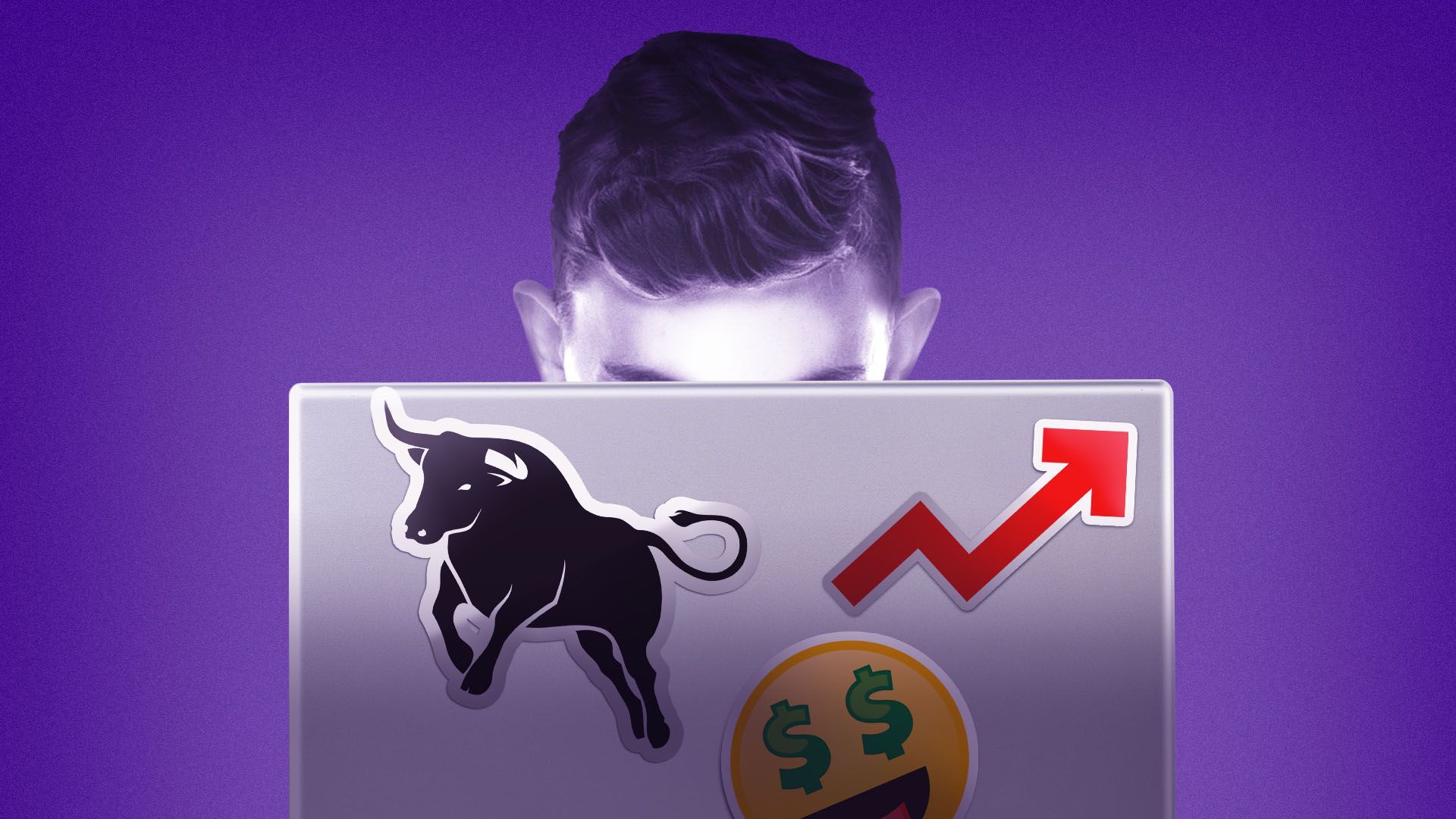How retail investors are beating the pros at their own game
Add Axios as your preferred source to
see more of our stories on Google.

Illustration: Sarah Grillo/Axios
Call it the Robinhood effect. In a tectonic shift that shows how the coronavirus pandemic has upended seemingly every part of our reality, millennials and Gen Z have started to abandon video games and sports betting in favor of a new craze: the stock market.
Why it matters: While many have wagged their fingers at what they see as overconfident and underprepared youngsters day trading on their smartphones, the stock market's new school — a collection of sports bettors, the newly unemployed, Reddit aficionados and eager young investors — is growing into a force on Wall Street.
- In fact, they are beating professional money managers so far this year. By a sizable margin.
What we're hearing: A top strategist at a major Wall Street investment bank tells Axios that it closely tracks a basket of securities most commonly traded by hedge funds, a basket for institutional asset managers and one for retail day traders — and is seeing clear outperformance from retail.
- "I’m just looking at the scoreboard on the year," he says. "And the work-from-home trader has been a pretty good performer."
Between the lines: Those who follow the markets say stock trading's booming popularity makes perfect sense given the actions of the Federal Reserve.
- The new Robinhood cohort is simply following the advice of sophisticated investors over the past decade — "Don't fight the Fed" and always #BTFD, "Buy the f*cking dip," meaning buy stocks whenever prices fall.
Keep it 💯: "When the Fed takes risk out of the equation this is the result," Phil Bak, an equities strategist and founder and CEO of SecLenX Capital Markets, tells Axios.
The backstory: When the S&P 500 fell by 34% in March, traditional money managers pulled funds out of stocks and even safe-haven U.S. government debt and went into money market funds, or savings accounts.
- The new crop of retail investors, on the other hand, saw opportunity and signed up in record numbers to buy stocks.
- On Robinhood, traders primarily had been buying big tech names like Amazon, Apple and Zoom, but have moved over the past month to speculative bets like cruise ships, bankrupt companies and leveraged oil ETFs.
From March 2009 to March 2020, U.S. stocks went on a historic bull market run during which the S&P 500 never fell by more than 20% from its last high. Now, even as unemployment has remained near Great Depression levels and bankruptcies have spiked, the stock market has improbably bounced back to record highs.
- The S&P is up 39% since the Fed stepped in on March 23 and pledged to buy an unlimited amount of U.S. government debt.
- It has since started purchasing bonds from U.S. companies, and announced it will make loans to medium-sized businesses and buy debt from every state in the country.
Where it stands: The Fed's unprecedented actions — which some argue violate the terms of its founding document, the Federal Reserve Act — have reinforced the so-called Fed put, or the idea that if stock prices fall enough the central bank will step in and flood the market with money, experts say.
- "The product of the maximization of the Fed Put and 'Don’t Fight the Fed' spawned Robinhooders, a new generation of investors keen on buying worthless companies backstopped by the Fed," Danielle DiMartino Booth, CEO of Quill Intelligence and a former adviser to the Dallas Fed, tells Axios.
The bottom line: The Robinhood cohort is winning right now, not by ignoring the lessons of the past but by embracing them and taking those lessons to the next level.
